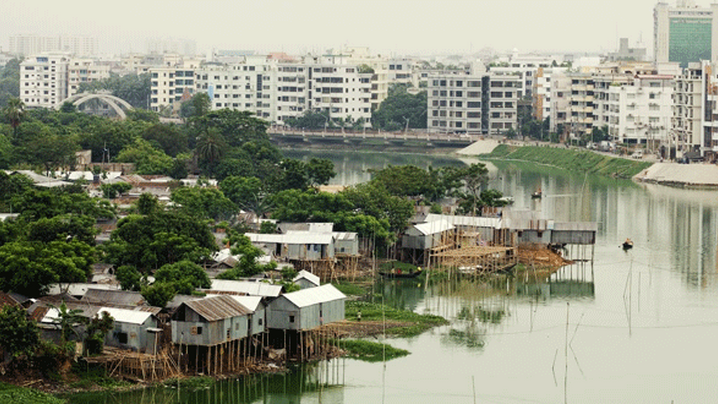
I joined ICMA in June 2013 as an assistant business/proposal manager. Currently I have been conducting research about urban food security, specifically in Bangladesh, and would like to share some of my research findings. I find urban food security issue fascinating and think that it is crucial that CityLinks has a food security aspect.
Urban Food (In)Security
Access to food is a major challenge for many of the world’s urban poor largely because the majority of urbanites worldwide only have access to food by purchasing it, and many cannot adequately do so to meet daily nutritional and household needs. According to a study completed by the RUAF Foundation, which looked at 900 households across Rosario (Argentina), Bogota (Colombia), Accra (Ghana), Kitwe (Zambia) and Colombo (Sri Lanka) in 2009, a range of 87% to 100% of the respondents to their survey buy their food (Dr. Prain, 2010). Employment status and income are major factors in considering the status of food security for many of these urbanites. Urban poor with low or medium income levels have developed some methods to cope with food insecurity such as decreasing the variety of foods they consume or the numbers of meals they eat per day. While informal agricultural production does occur (such as raising backyard livestock or gardens), it is not generally one of the common mechanisms. This may be due to the lack of knowledge about methods to grow food in constrained areas (Dr. Prain, 2010). Thus, capacity building programs inform urban poor about simple technologies used to grow food that can help them deal with urban insecurity. It is also critical to improve the linkages between rural and urban to enable sufficient food distribution and food transfer between peri-urban and rural to urban areas.
It is important to note that food insecurity has dramatic impacts for the urban poor. The inability to have access to food and appropriate water and sanitation due to high food prices, inefficient food distribution and markets, and climate change is a critical problem for them.
Bangladesh
“While Bangladesh is nearly self-sufficient in rice production, food security remains an elusive goal. Currently, an alarming 43% of children under-five in Bangladesh are stunted due to continuous malnourishment as a result of poor feeding habits and lack of access to nutritious foods. The average Bangladeshi diet lacks diversification with 75% of calories consumed coming from rice” (USAID Bangladesh). In the urban areas in Bangladesh, food insecurity is a crucial problem. Even though the rice purchasing capacity of the urban poor is higher than the rural poor, the urban poor, especially the ones living in slum areas, spend more for non-food expenditures, such as rent and utilities. In these areas, the residents use 60-90% of their income for purchasing food. This allows only a small portion of income for other needs such as rent, utilities, and education of children. Moreover, urban food inflation was higher (10.8%) than the rural (7.2%) in 2012. To deal with increasing food prices, parents reduce the size of their meals, and the number of their meals per day, they preserve the available for their children and consume wild food such as wild potato or banana. Sometimes they borrow money from local lenders, which puts them in a debt trap, and try to find extra jobs by leaving the elder children at home to take care of their younger siblings (World Food Programme, 2012).
Increasing permaculture can be another coping method for urban poor to attain better access to food by increasing quantities of food and diversifying the food available to them. According to the study of International Food Policy Research Institute conducted in four primary Bangladeshi cities, people inhabiting urban slums have relative food insecurity. They have more various diets than rural poor but they are more vulnerable to lose access to food. Their situation is not very different from the others in rural areas in terms of food insecurity. However, urban poor, especially the ones living in the slums, cannot benefit from social programs as much as the rural poor. According to the same study, people in slums can only receive 4.5% of the government’s social aid. The report argues that current social programs have bias in favor of the rural poor (Benson, 2007). Urban food insecurity is a very crucial problem in Bangladesh as it is the case in many cities in developing countries and it is important to develop programs targeting it parallel to the ones in rural areas.
The RUAF Foundation is a part of ICMA’s CityLinks team and to learn more about CityLinks, visit our website, follow us on Twitter at @ICMACityLinks, and join our climate change discussion in the Climate Preparedness, Adaptation, and Resilience group on the Knowledge Network. Please visit ICMA International’s site for additional information on ICMA’s other global projects.
New, Reduced Membership Dues
A new, reduced dues rate is available for CAOs/ACAOs, along with additional discounts for those in smaller communities, has been implemented. Learn more and be sure to join or renew today!
